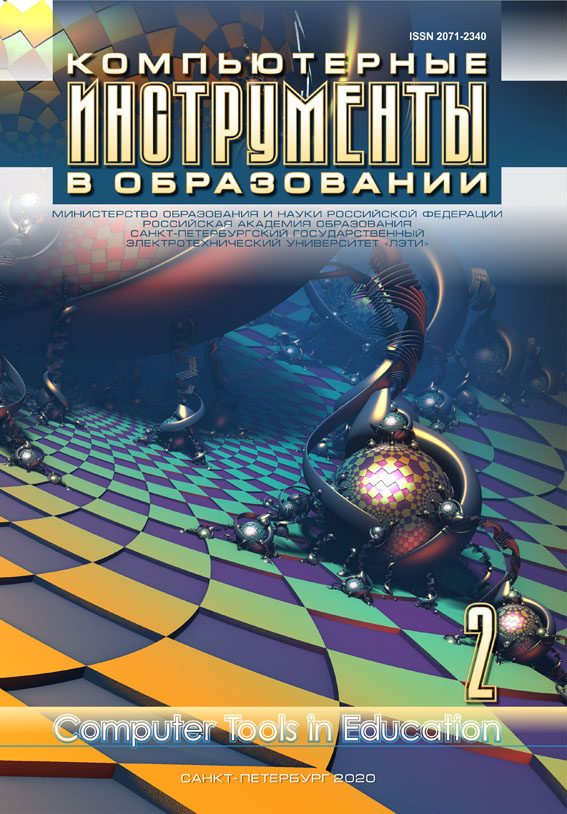Осмысление задачи посредством моделирования предметной области (с целевой установкой на создание генератора задач)
Аннотация
Данная статья представляет теоретический анализ проблемы осмысления учебного материала по математике на примере задачи, которая была предложена Н. Н. Паньгиной в качестве “пробного камня” для изучения взаимодействия учителя и ученика в организации самостоятельной работы последнего [наст. изд., с. 80–93].
В статье рассматривается методический подход, основанный на изменении цели в отношении поставленной задачи. Вместо того, чтобы начинать с поиска решения поставленной задачи с конкретными данными и концентрировать внимание ученика на “построении маршрута” от условий задачи к тому, что требуется найти, предлагается строить модели, позволяющие генерировать новые задачи, аналогичные данной.
Такая постановка задачи меняет психологическую установку ученика, снимает с него ответственность за успешность решения конкретно поставленной задачи. В то же время, подталкиваемый учителем ученик строит различные симуляционные модели, которые легко запрограммировать и превратить в генераторы задач,тем самым формируя математическую модель проблемной области, в которой была поставлена задача.
В основе предложенного подхода лежит деятельностный подход, предложенный в работах А. Н. Леонтьева в 70-х годах прошлого века [1], идея вынесения трудных для понимания интеллектуальных действий вовне, чтобы задействовать механизм интериоризации [1, 2] и работы Симура Паперта, связанные с использованием компьютерных артефактов в качестве посредников для осмысления новых математических идей [3, 4].
Литература
A. N. Leont’ev, Deyatel’nost’. Soznanie. Lichnost’ [Activity, Consciousness, and Personality], vol. 2, Moscow: Pedagogika, 1983 (in Russian).
L. S. Vygotskii, Psikhologiya razvitiya cheloveka [Human Development Psychology], Moscow: Smysl, Eksmo, 2005 (in Russian).
S. Peipert, Perevorot v soznanii. Deti, komp’yutery i plodotvornye idei [Mindstorms: Children, Computers, and Powerful Ideas], Moscow: Pedagogika, 1989 (in Russian).
S. Papert, “An Exploration in the Space of Mathematics Educations,” Int J Comput Math Learning, vol. 1, no. 1, pp. 95–123, 1996; doi: 10.1007/BF00191473
A. Schoenfeld, Mathematical Problem Solving, New York: Academic Press, 1985.
U. J. Wilensky, Connected Mathematics — Building Concrete Relationships with Mathematical Knowledge, PhD diss., Massachusetts Institute of Technology, Cambridge, MA, US, 1993.
A. S. Prangishvili, Issledovaniya po psikhologii ustanovki[Research in Attitude Psychology], Tbilisi, Georgia: Izd-vo Metsniereba, 1967 (in Russian).
A. G. Asmolov, “On the hierarchical structure of the installation as a mechanism for regulating activity,” in The unconscious and its nature, functions and research methods, F. V. Basin, A. S. Prangishvili, and A. E. Sherozia, eds., Tbilisi, Georgia, vol. 1, pp. 147–157, 1978 (in Russian).
A. G. Asmolov, “O meste ustanovki v strukture deyatel’nosti” [On the place of installation in the structure of activity], PhD diss. in Psychology [Abstracts], Moscow State University, Moscow, 1976 (in Russian).
S. G. Ivanov and S. N. Pozdnyakov, “Komp’yuter v produktivnom obuchenii matematike ili kak informatsionnye tekhnologii mogut podderzhat’ intellektual’nuyu svobodu obuchaemogo” [Computer in productive teaching of mathematics or how information technologies can support the intellectual freedom of the student], Computer tools in education, no. 5, pp. 10–20, 2003 (in Russian).
S. G. Ivanov “Sochetanie diskussii s eksperimentom na uroke matematiki” [Combining discussion with experiment in a mathematics lesson], Computer tools in school, no. 2, pp. 66–72, 2009 (in Russian).
N. Vavilov, “Reshaping the metaphor of proof,” Phil. Trans. R. Soc. A, vol. 377, no. 2140, 2019; doi: 10.1098/rsta.2018.0279
M. Minsky, “Emotions and the Society of Mind,” M. Clynes and J. Panksepp, eds., Emotions and sychopathology, Springer, pp. 171–179, 1988; doi: 10.1007/978-1-4757-1987-1_7
V. V. Davydov, Problemy razvivayushchego obucheniya[Developmental learning problems], Moscow: Academia, 2004 (in Russian).
G. Polya, Mathematical discovery, Moscow: Nauka, 1970 (in Russian).
G. Polya, How to Solve It, Moscow: Librokom, 2010 (in Russian).
L. B. Gorelik, “Interactive mini-taskers,” Computer tools in school, no. 6, pp. 3–14, 2008 (in Russian).
M. I. Bashmakov, Teoriya i praktika produktivnogo obucheniya [Theory and practice of productive learning], Moscow: Narodnoe obrazovanie, 2000 (in Russian).
M. Wertheimer, Produktivnoe myshlenie [Productive thinking], Moscow: Progress, 1987 (in Russian).
S. F. Adlaj and S. N. Pozdnyakov, “Digital Representations of Mathematical Objects in the Context of Various Forms of Representation of Mathematical Knowledge,” Computer tools in education, no. 1, pp. 58–86, 2020 (in Russian); doi: 10.32603/2071-2340-2020-1-58–86
R. Noss and C. Hoyles, Windows on mathematical meanings: Learning cultures and computers, vol. 17, Springer Science & Business Media, 1996; doi: 10.1007/978-94-009-1696-8
Материал публикуется под лицензией:








